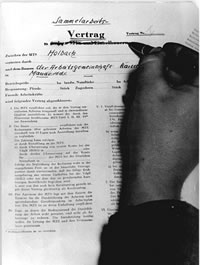By Amit Sonawane

Legal parlance if it needs translation, needs the services of an expert that is highly knowledgeable in legal terms and practices. Translating legal documents needs accurate and correct translation and is one of the most difficult among all translation work. There are many things that need legal translation, including birth certificates, application letters, technical patent confirmation, deposition records, financial statement, evidence documents, litigation materials and business contracts. Translators should not only possess general knowledge of legal terminology, they should also be well versed in statutory requirements and the legal intricacies of foreign cultural and legal systems.
Translation per se is already a complex process that involves so many specific skills. However, translating legal documents is more exacting, as the ramifications of even the slightest of mistakes will involve a complex legal process, notwithstanding the financial costs, for it to be reversed.
There are some things to keep in mind when doing legal translation. The source text is structured to follow the legal system that conforms to its own legal language and culture. The target text on the other hand will be read by another person that is familiar with another language and legal system.
There should be clearly defined duties and rights for all organizations and individuals concerned when creating the translation. It should ensure that these are delivered precisely in the source and target texts. Likewise it should be remembered that the linguistic structures of the source language might not have direct equivalents in the target language, thus it is the responsibility of the translator to find a suitable language structure that is similar to the source text.
Legal translation carries strict deadlines, because when the translated documents are needed particularly in court, a delay might render the document null and void. Confidentiality is an issue because almost all legal documents contain sensitive data.
Lawyers constantly face the contrasting world of the real legal life and the ideal look of the law, which is actually an assortment of numerous precedents that are still subject to general interpretation, and not by permanent statutes.
Lawyers, when dealing with international legal problems have to deal with words that should be accurately written, which depend on good sentence structure, syntax and word selection. That is the reason why legal translators should have the necessary experience and knowledge of legal terminologies of both the source and target languages. An international lawyer will depend on the expertise of a translator to have foreign documents translated into his own language.
Translating legal documents in foreign languages are considered more difficult than other technical translations. The legal terminology is what makes it difficult because each country has its own legal terminology as well as legal system. More often than not, this is also different from another country even if the language they speak is identical.
A legal translator must have the competencies in three areas: competency in the target language's particular writing style, familiarity with the pertinent terminology and general knowledge of the legal systems of the source and target languages. There is no room for word for word translation when translating legal documents.
Due to this, the professional translator of legal documents must be part detective, legal scholar and linguist with the amount of research work that needs to be done to be able to decode the source and write its actual meaning that will never, in any circumstances, deviate from the originate content, even if an exact translation is not possible.
Likewise, the translator must understand where the translation is to be used as this will affect the approach when translating the document. It definitely affects several parameters, including tone or register, syntax, phraseology and terminology. When the source text is not well written, it is also the job of the translator to decide whether to translate it into something vague as the original or make it meaningful, which could be the case but was hampered by poor writing.
Legal document translation is such a demanding task. It requires professional legal translators that have the right academic background, and are backed by years of legal translation expertise.
References: http://www.asta-usa.com/legal_translation_services_company.php
http://www.ccaps.net/newsletter/06-05/art_3en.htm
Writing systems | Language and languages | Language learning | Pronunciation | Learning vocabulary | Language acquisition | Motivation and reasons to learn languages | Arabic | Basque | Celtic languages | Chinese | English | Esperanto | French | German | Greek | Hebrew | Indonesian | Italian | Japanese | Korean | Latin | Portuguese | Russian | Sign Languages | Spanish | Swedish | Other languages | Minority and endangered languages | Constructed languages (conlangs) | Reviews of language courses and books | Language learning apps | Teaching languages | Languages and careers | Being and becoming bilingual | Language and culture | Language development and disorders | Translation and interpreting | Multilingual websites, databases and coding | History | Travel | Food | Other topics | Spoof articles | How to submit an article
[top]
You can support this site by Buying Me A Coffee, and if you like what you see on this page, you can use the buttons below to share it with people you know.

If you like this site and find it useful, you can support it by making a donation via PayPal or Patreon, or by contributing in other ways. Omniglot is how I make my living.
Note: all links on this site to Amazon.com, Amazon.co.uk
and Amazon.fr
are affiliate links. This means I earn a commission if you click on any of them and buy something. So by clicking on these links you can help to support this site.
[top]